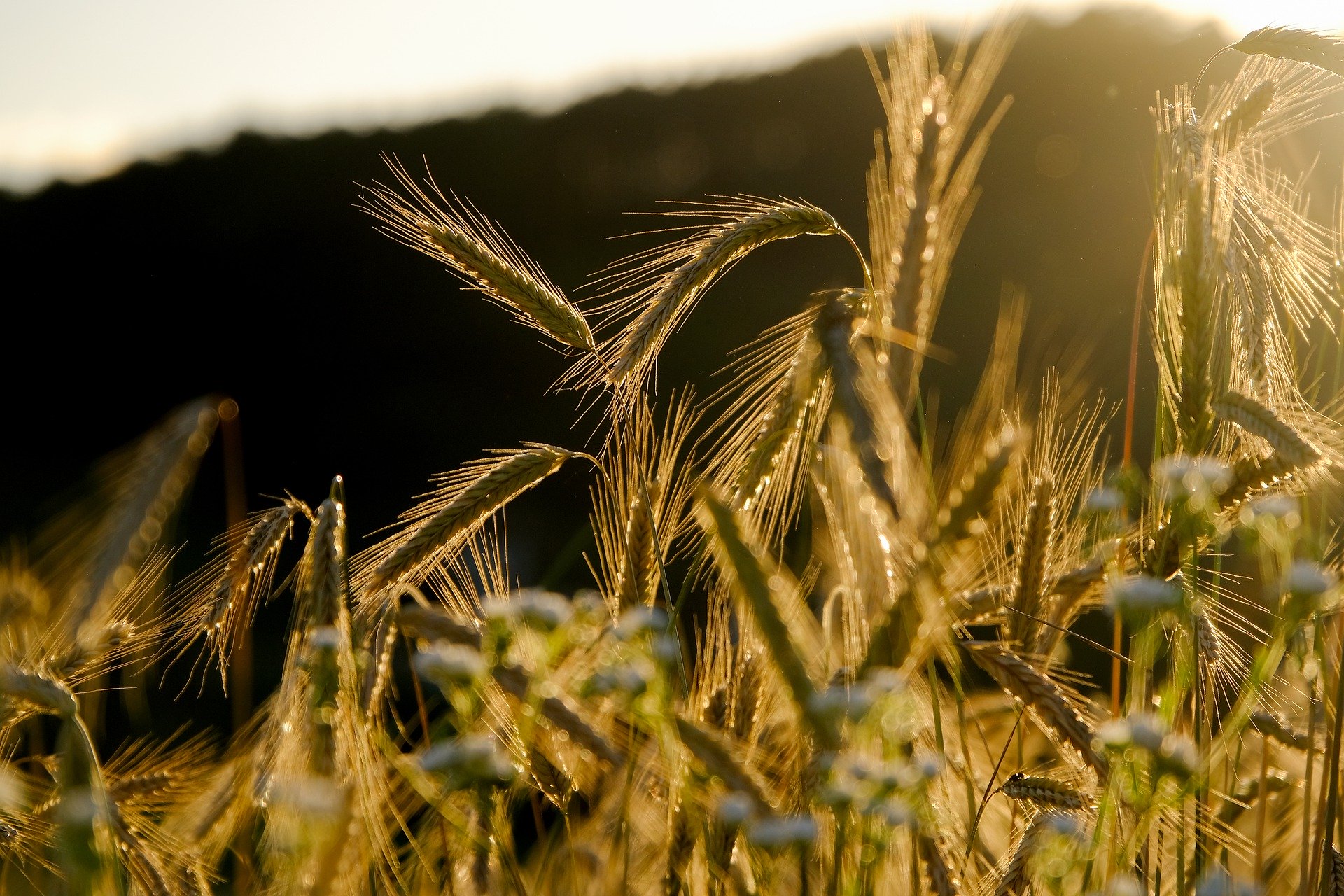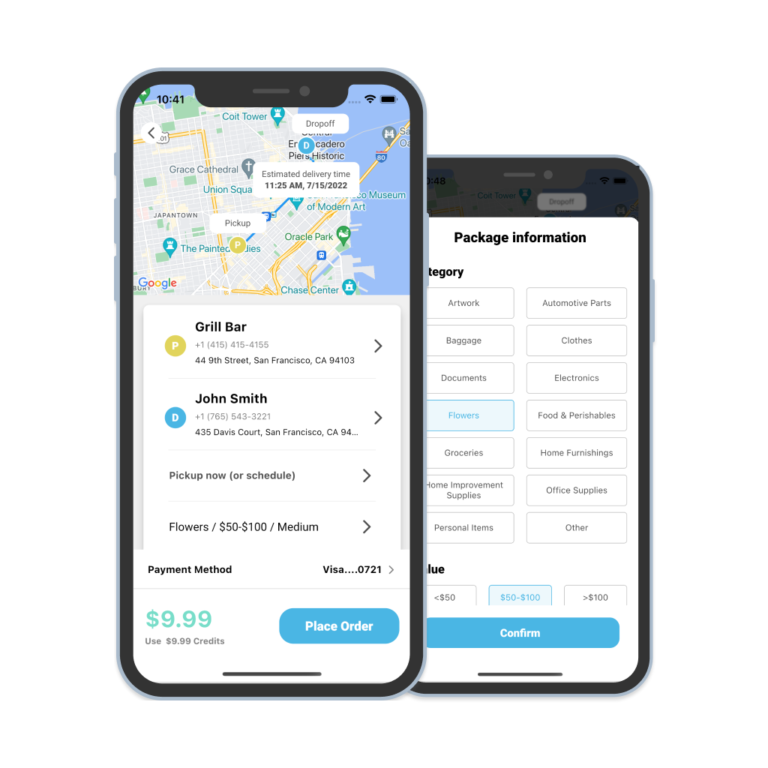Image credit: NickyPe from Pixabay
As people across the country wake up to deeply rooted racial inequality across many industries, policies, and systems, there naturally arises a curiosity about who stands to benefit from the current status quo, who suffers, and how these systems need to change.
Recently, I had the opportunity to interview different NorCal farmers about the impact of the pandemic on their work. Amber Balakian, one of the farmers I interviewed, has been instrumental in helping me also understand the way Agriculture ( or just “Ag”) suffers from unjust processes. Amber, an African American / Armenian woman who co-runs her organic family farm, fights against these systems everyday.
The Story of Balakian Farms
Balakian Farms has managed to weather the pandemic so far, and Amber attributes their financial sustainability to a loyal customer base, retail distribution, and local farmers markets’ ability to create CSA programs. The farm grows organic stone fruit, heirloom tomatoes, and summer crops on 20 acres in Reedley, California.
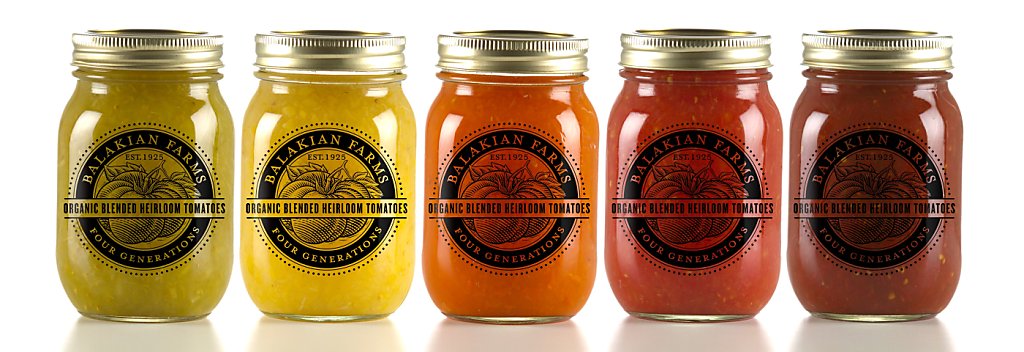
I’d argue however, that there is an enduring quality that the farm possesses, which has carried them through the pandemic: Balakian Farms was built on a foundation of hope. Amber’s great grandparents fled the Armenian genocide, emigrated to America, and planted a vineyard in the soil over 80 years ago. Resilience and strength run deep in this farm.
The farm is also a diverse mixture of African American and Armenian culture. Amber’s mom is Armenian and took on the farm’s operations from her parents while Amber’s dad, who’s African American, co-runs the farm and helps at the farmers market. Amber explained how the family farm’s values might differ from those of a large, corporate farm.
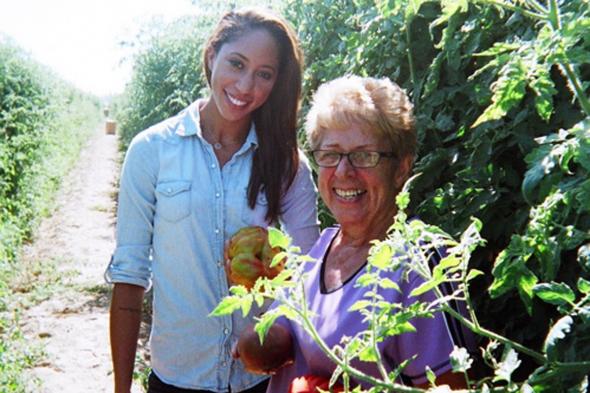
“African American and Armenian cultures both have strong familial bonds from cultural oppression and persecution. Family’s important and we stick together. We lift each other up. We take care of the people who work with us and we treat them with respect. Employees stay with our farm for a long time.”
This familial, close-knit way of running the farm is important to the Balakian family. I’m sure it’s helped them through the peaks and valleys, especially when it comes to the hurdles this diverse family farm has overcome in their efforts to grow.
“You’re set up to fail.”
Amber’s position as co-manager and owner of the farm is unique in that she’s a woman of color, which is a cross section of two demographics that typically aren’t seen in farming. Amber grew up watching her mother navigate the seemingly endless, complex maze of governmental aid. After Amber graduated with her MBA at Harvard and moved back to help manage the farm, she experienced first-hand the frustration, lack of help, and exclusivity of these programs.
First though: What exactly are these forms of aid? They’re government subsidy programs, grants, and incentivized programs that were created to help farmers sustain and grow their businesses. Farmers are indebted to these forms of assistance because each year production and labor costs rise due to the competitiveness of pricing. Farmers aim to “scale up;” that is, produce more, increase their profit, and participate more competitively in the marketplace ( by selling to larger food retailers.)
However, there’s a gaping chasm between those who receive this funding and those who don’t.
“There’s very few female-run, minority-run large farms. You wonder, ‘Why is that? Why are most of these larger, corporate farms run by white men?’” Amber questioned. She also pointed out how just like in any other industry, you need certain resources to access the money you require.
In Ag, farmers need time, money, and the help of experts to get certain grants and expand their operations. Most small farms don’t have these things to begin with, therefore their ability to acquire further resources is nonexistent. They’re never put into a position to scale up.
Additionally, the process of applying for these programs is best described as a convoluted, bureaucratic nightmare.
“I have my masters and for me to struggle through understanding some of this stuff, I can only imagine someone without an MBA. How is anyone else doing it?” Amber wondered. While many family farms are barely able to stay afloat year after year due to rising costs, there’s a certain threshold that family farms, women-run farms, and minority-run farms never reach. It’s the arena of concentrated and increasing wealth, where primarily white men raise their profit and compete in the marketplace.
These systems weren’t designed to consider, let alone help people of color and women. The access to resources is set up for traditional, corporate Ag while many small farms live on the brink of losing their livelihoods.
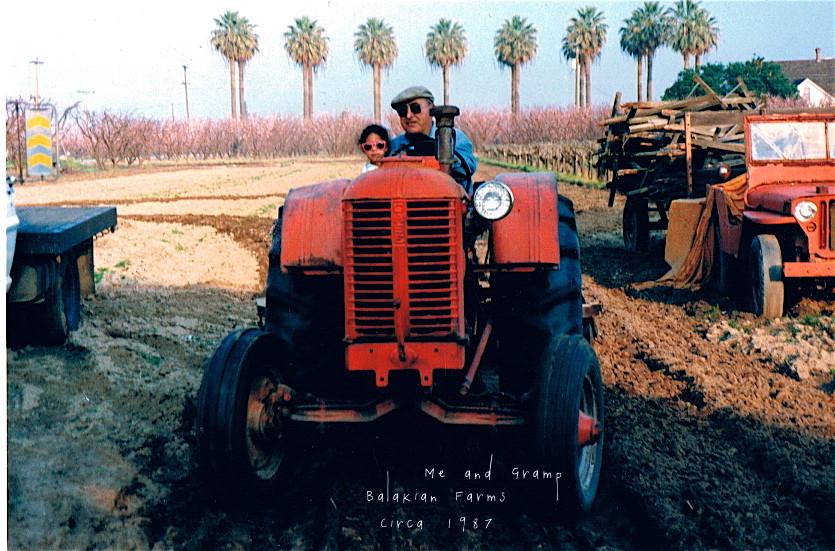
The Power of the Consumer
When I asked Amber about how these systems could become more equitable, she mentioned two key components: overhauling the government programs and educating consumers on the systems in which their food is made, processed, and distributed.
Ultimately, Amber explained that consumers drive trends and change within the industry. When people demanded more organic options in their grocery stores a few years ago, Agriculture scrambled to renovate preexisting standards of conventional farming and give the people what they wanted.
The same could be true for small farms, especially those run by people of color and women. That’s why Amber is passionate about sharing her story on social media and with customers at the farmers market. The more people know, the more they’re likely to support diverse farms.
The fact of the matter is that consumers generally aren’t driven purely by altruism. That’s why Amber discussed ways in which supporting small, diverse farms benefits everyone. By doing so, people have far more access to a wider variety of produce. Farmers coming from different cultures grow different things, and neglecting these farms leads to a narrow, generic set of options at grocery stores.
In an economic sense, smaller farms produce a lot of jobs and help bolster local economies. Balakian Farms employs whole families to help run their operation. Lastly, the biggest benefit consumers gain from prioritizing small, diverse farms is breaking up the monopoly trend which is rapidly growing in Agriculture.
Amber explained, “An industry with consolidated power creates barriers that make it difficult for new producers to enter the industry, and less flexibility for the consumer of a product. This greatly impacts not only the health of the consumer but all stakeholders involved.”
Imagine having the option for only one type of carrot from one farm ever in your grocery store. And what if the carrot wasn’t even that good? Diversity of farms supports diversity of crops, produce quality, and local economy growth. Wins, I’d say, that are for everyone.
Black Lives Matter Sheds Necessary Light
Amber attributes the merging of COVID-19 and the Black Lives Matter movement to a heightened concern for how our country runs. The agricultural industry hasn’t escaped this inquisition. BLM has brought systems and policies of racial inequity to the forefront of people’s minds, and the implications of COVID-19 have given people something precious: time.
Time to reflect, research, and dive into what experts and activists have been talking about for years. I’ve forever been changed by this gift of time.
Food has also been brought to the forefront of people’s days. Because many are cooking more than they ever have, there’s been a huge surge in interest surrounding where our food comes from. This newfound curiosity mixed with uncovering racial inequalities has accelerated problem-solving issues of inaccessibility, inequity, and the ever growing monopoly on the food supply chain.
These factors have so far fit together into a larger puzzle with some pieces that are yet to be uncovered: How did we get this way? What can we all do to help change it?
Luckily, we’re in a position where it’s not too late. Go to farmers markets if you can, request diverse farms as a distributor at your grocery store, and reach out to your local congress. Farmers like Amber need the help of consumers like you to repair yet another inequitable system.
Check out these resources for more information:
https://www.caff.org/
https://cuesa.org/learn
For Bay Area folks, say hi to Amber at the Ferry Plaza Farmers Market!
